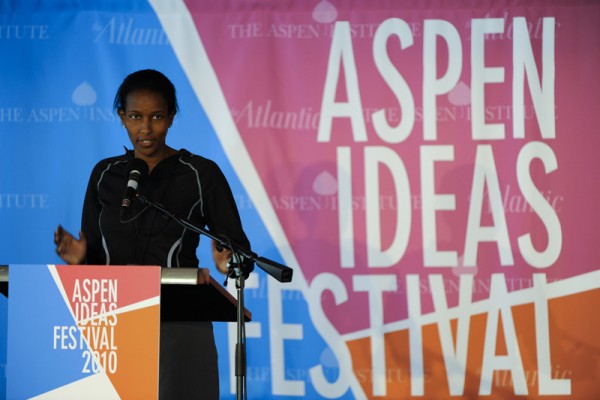Brandeis Should Not Have Rescinded Award From Ali
May 1, 2014

On Tuesday, April 8, Brandeis University made the decision to rescind their offer of an honorary degree from Ayaan Hirsi Ali, apparently at the urging of the Council of American-Islamic Relations (CAIR). In taking such a drastic measure, Brandeis bowed to the pressure of an organization that is known for silencing those who speak out against Islam—even in those situations where it is merited—and Ali was unrightfully deprived of a well-earned honor.
Raised in a strict Islamic environment, Ali endured genital mutilation and attempts from her family to marry her off to a man against her wishes. Due to these issues, she gave up Islam when she was 30, and since then has been a strong advocate for women’s rights, speaking out against the abuses and injustices done to Muslim women, particularly in the Middle East and South Africa. In 2007, she founded Ayaan Hirsi Ali (AHA), an organization which works to protect and defend women’s rights against the kind of oppression that is justified by culture and religion. The organization “creat[es] national and regional databases and resource guides for girls and women in distress so that [they] can link them with social workers, attorneys, safe houses, and individuals and institutions qualified to deal with cases of crime, maltreatment and abuse in the religious and cultural contexts.” AHA also wants to make law enforcement in the United States aware that these types of crimes can occur here as well.
Ali was to be rewarded for her work at Brandeis’ 2014 Commencement on May 18, but because of CAIR, as well as efforts made by Brandeis’ students and faculty who warned that Ali was extremely anti-Islamic, Brandeis retracted the award.
In a 2007 interview with The London Evening Standard, Ali stated that she wants all of Islam to be disrupted—not just the radical branch. This seems to be the root of the University’s hesitation to reward Ali. She is not only against the cruelty fostered by fundamentalism but against the religion as a whole. However, Ali, despite her radical views, has done great work: She deserves the award. While it is true her comments regarding Islam leave something to be desired, it is nonetheless true that Ali has recognized an important issue—the violence and oppression of women justified by religion—and has done a great deal to help combat it.
However, it seems that Ali herself was surprised that she was considered for the degree in the first place. She said in her interview with Fox News: “In the age of Google, all of this is out there, it’s all public.” Ali clearly feels that Brandeis was aware of her activities—and it is not a ridiculous assumption. A quick Google search of Ali details both her praiseworthy accomplishments and her rather radical comments. Additionally, since the honorary degree recipient is chosen through an election and the president of the school is required to sign off on the decision, it is very doubtful that Brandeis was not aware of Ali’s anti-Islamic statements.
We have to ask, in this situation, if Brandeis’ decision reflects an inherent fear of speaking out against Islam in our society. The answer to me seems to be yes. While Ali is an extreme case, we’d never fault someone for criticizing the Catholic Church’s failures in addressing their sexual abuse problem.
Rescinding Ali’s award occurred around the same time that CAIR urged schools and universities to stop screenings of the movie titled“The Honor Diaries,” a film produced by Ali herself. The movie is a documentary about the abuse women face in Muslim communities—particularly those in the West. The point of this movie is to make other countries aware of what is going on in the name of religion and culture, and this is precisely why CAIR does not want instances like these to be exposed. CAIR fails to, or at least refuses to, see the problems that are plaguing Islam. Similarly, Ali fails to see any good in the religion, and while that is problematic, so is the other side of the spectrum.
Withdrawing the degree from Ali makes it look like we are afraid to be aware of the cruelties occurring in other countries. If CAIR gets its way, then those like Ali, who have faced the kind of abuse that has been justified by religion, would not be able to share their experiences.
Brandeis’ actions present a dangerous path. It is one in which so-called “political correctness” translates into the silencing of controversial, but important, issues. This trend cannot be allowed to continue. If we aren’t given the opportunity and the space to discuss these kinds of issues, then they can never be resolved. Being politically correct is all well and good, but we cannot use it as an excuse.









